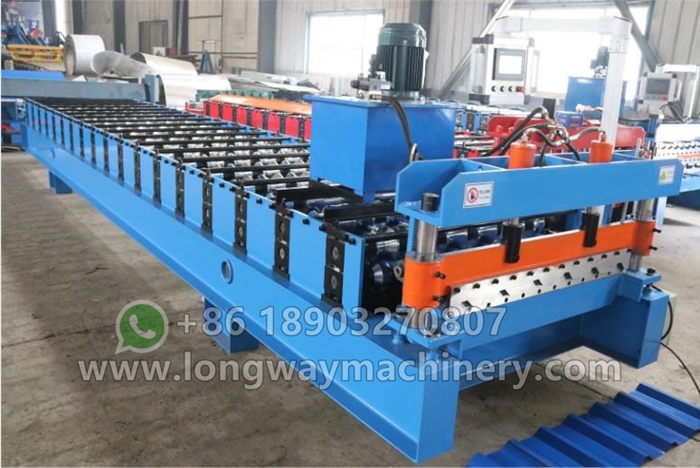custom roll forming machine factories
Custom Roll Forming Machine Factories An Overview
In the manufacturing industry, the significance of customized solutions has become increasingly prominent. One key area where this need is met is in the production of custom roll forming machines. These machines are essential for creating specialized metal products that meet the exact specifications of various industries, including construction, automotive, and furniture.
Roll forming is a continuous bending operation in which long strips of metal are passed through a series of rollers to create a desired shape. The process is highly efficient and allows for the production of complex profiles with consistent quality. Custom roll forming machines are designed to cater to the specific needs of clients, offering versatility in design and production capabilities.
The Role of Custom Roll Forming Machine Factories
Custom roll forming machine factories play a crucial role in this sector. These factories not only design and manufacture roll forming machines but also provide ongoing support and maintenance services. They work closely with clients to understand their unique requirements, which may involve adapting existing machines or designing entirely new models.
One of the primary advantages of custom roll forming machines is their ability to produce tailored products at competitive rates. Traditional metal fabrication methods can be labor-intensive and time-consuming. In contrast, roll forming offers faster production cycles and lower labor costs due to its automated nature. As a result, businesses can respond quickly to market demands while maintaining high-quality standards.
Key Components of Custom Roll Forming Machines
custom roll forming machine factories

Custom roll forming machines consist of several essential components, including a decoiler, feeding mechanism, roll tooling, and a cutting system. The decoiler unwinds the metal sheet, feeding it into the forming station. The roll tooling is custom-designed to shape the metal into the desired profile, ensuring precision and consistency. Finally, the cutting system can be tailored to produce specific lengths, often incorporating a saw or a shear mechanism.
The flexibility of custom roll forming machines allows factories to produce a wide range of profiles, from simple shapes like angles and channels to more complex designs such as Z- and C-profiles, which are commonly used in construction and framing applications. By investing in custom solutions, manufacturers can reduce waste and optimize material efficiency, contributing to sustainable production practices.
Industry Applications and Future Trends
The applications of custom roll forming machines are vast. In the construction industry, they are used to create roof and wall panels, purlins, and other structural components. The automotive sector utilizes roll-formed parts for brackets and chassis components, while the furniture industry incorporates these profiles into products ranging from shelving units to decorative elements.
As technology continues to advance, custom roll forming machine factories are expected to evolve. The integration of automation, artificial intelligence, and advanced materials will enhance production capabilities and efficiency. Furthermore, the demand for lightweight and high-strength materials, such as aluminum and advanced steel alloys, will drive innovation in machine design.
Conclusion
In summary, custom roll forming machine factories are pivotal in the modern manufacturing landscape. By providing tailored solutions to various industries, they enable businesses to achieve their production goals more effectively. The ability to deliver high-quality, customized products at competitive prices positions these factories at the forefront of industrial innovation. As the industry progresses, the collaboration between manufacturers and roll forming machine factories will continue to shape the future of metal fabrication. Embracing new technologies and trends will be vital for sustaining growth and meeting the ever-evolving needs of diverse markets.
-
Roof Panel Machines: Buying Guide, Types, and PricingNewsJul.04, 2025
-
Purlin Machines: Types, Features, and Pricing GuideNewsJul.04, 2025
-
Metal Embossing Machines: Types, Applications, and Buying GuideNewsJul.04, 2025
-
Gutter Machines: Features, Types, and Cost BreakdownNewsJul.04, 2025
-
Cut to Length Line: Overview, Equipment, and Buying GuideNewsJul.04, 2025
-
Auto Stacker: Features, Applications, and Cost BreakdownNewsJul.04, 2025
-
Top Drywall Profile Machine Models for SaleNewsJun.05, 2025








